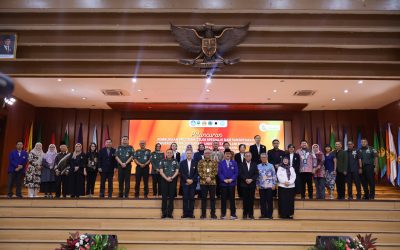Glioblastoma remains one of the deadliest brain tumors, largely resistant to conventional therapies. A multidisciplinary Indonesian research team led by Prof. Ahmad Faried explored a novel approach: leveraging the secretome of human umbilical cord mesenchymal stem cells (hUCMSCs) to target oncogenic pathways in glioma.
The study demonstrated that hUCMSC-derived secretions exert cytotoxic effects on glioblastoma cells, while simultaneously downregulating key oncogenes such as HOX, IGFBP2, EGFR, and ERK. Importantly, they enhanced Caspase-3 expression, promoting apoptosis in tumor cells.
Laboratory assays confirmed the multipotent nature of the stem cells and their ability to produce secretomes rich in growth factors and cytokines. Unlike direct cell therapies, secretome-based treatments avoid risks of uncontrolled proliferation while retaining therapeutic potency.
The implications are significant. By modulating both tumor-intrinsic genes and the tumor microenvironment, hUCMSC secretomes may offer a safer and more effective adjunct to current therapies. Moreover, this approach could circumvent the limitations posed by the blood–brain barrier, which hampers traditional drug delivery.
Although further preclinical and clinical trials are required, the findings represent a bold step toward next-generation glioblastoma therapy. Harnessing natural biological secretions, rather than synthetic drugs alone, may transform the treatment landscape for one of oncology’s most formidable challenges.
This research advances SDG 3: Good Health and Well-Being by paving the way for innovative cancer therapies, and SDG 12: Responsible Consumption and Production by promoting sustainable biomedical approaches using natural biological products. Universitas Padjadjaran’s leadership in this cutting-edge field further strengthens its global impact and standing in the THE Impact Rankings.





0 Comments